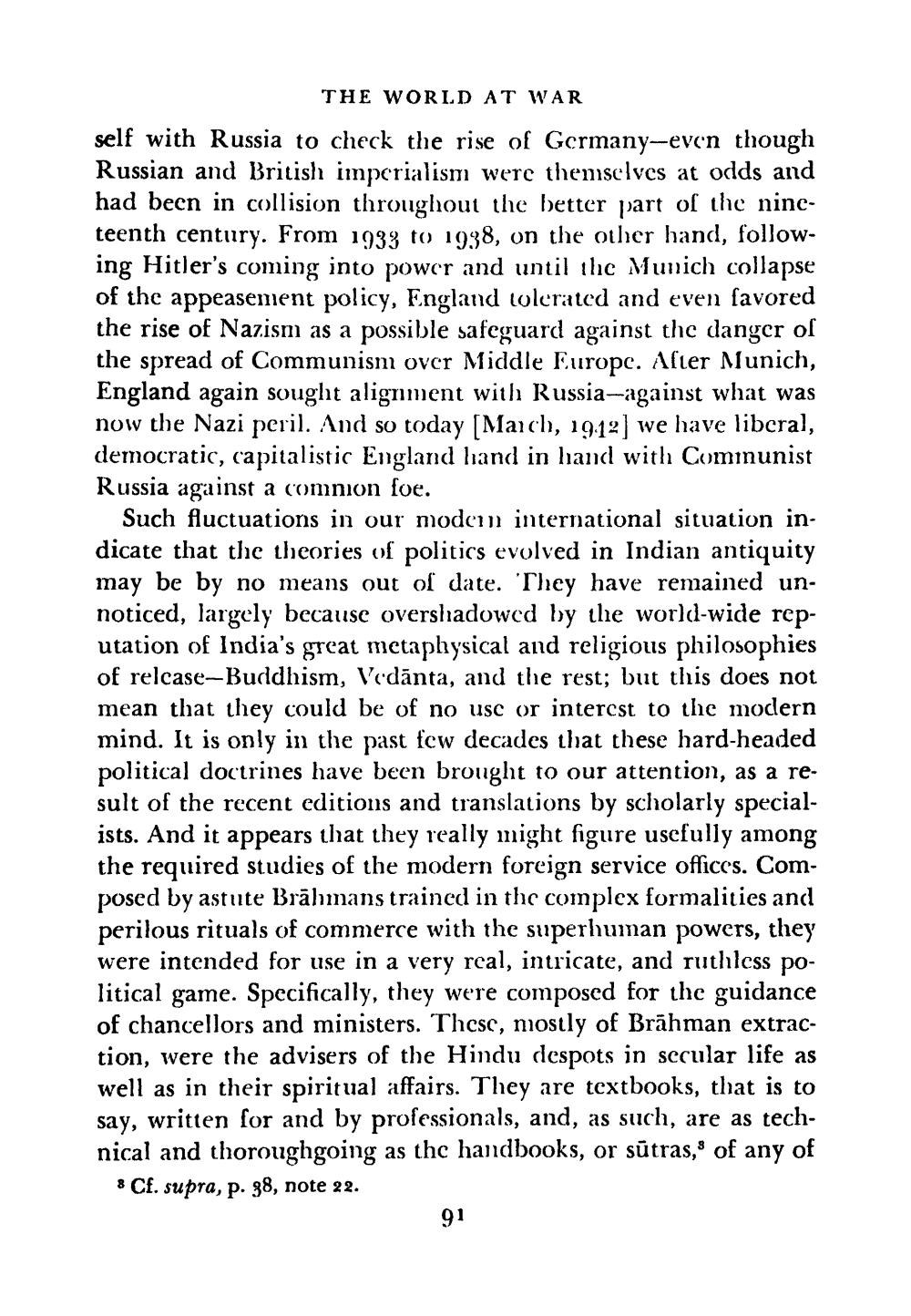________________
THE WORLD AT WAR self with Russia to check the rise of Germany-even though Russian and British imperialism were themselves at odds and had been in collision throughout the better part of the nineteenth century. From 1933 to 1938, on the other hand, following Hitler's coming into power and until the Munich collapse of the appeasement policy, England tolerated and even favored the rise of Nazism as a possible safeguard against the danger of the spread of Communism over Middle Europe. After Munich, England again sought alignment with Russia-against what was now the Nazi peril. And so today (March, 1912) we have libcral, democratic, capitalistic England hand in hand with Communist Russia against a common foe.
Such fluctuations in our modem international situation indicate that the theories of politics evolved in Indian antiquity may be by no means out of date. They have remained unnoticed, largely because overshadowed by the world-wide reputation of India's great metaphysical and religious philosophies of relcase-Buddhism, Vedānta, and the rest; but this does not mean that they could be of no usc or interest to the modern mind. It is only in the past few decades that these hard-headed political doctrines have been brought to our attention, as a result of the recent editions and translations by scholarly specialists. And it appears that they really might figure usefully among the required studies of the modern foreign service offices. Composed by astute Brālmans trained in the complex formalities and perilous rituals of commerce with the superhuman powers, they were intended for use in a very rcal, intricate, and ruthless political game. Specifically, they were composed for the guidance of chancellors and ministers. These, niostly of Brāhman extraction, were the advisers of the Hindu despots in secular life as well as in their spiritual affairs. They are textbooks, that is to say, written for and by professionals, and, as such, are as technical and thoroughgoing as the handbooks, or sūtras,of any of
8 Cf. supra, p. 38, note 22.
91




